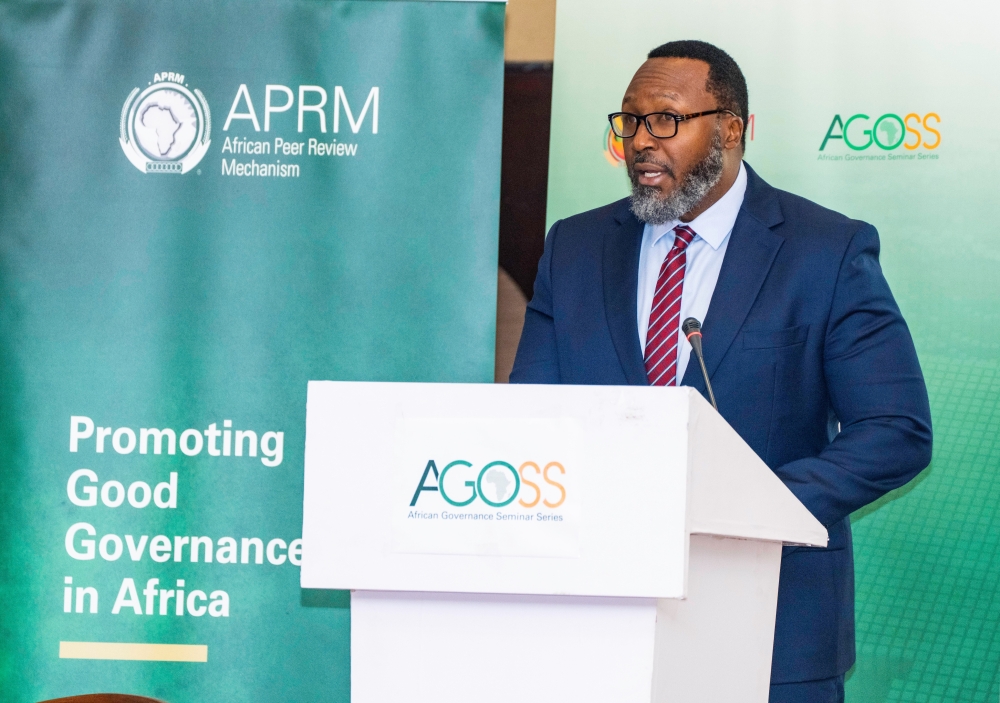Africa is moving to reshape how its economies are perceived on the global stage, with a growing push to accelerate the launch of the African Credit Rating Agency (AfCRA).
AfCRA is an initiative of the African Union aimed at providing more accurate assessments of African economies while addressing longstanding biases from international credit rating institutions.
African policymakers and economists have intensified calls for fairer ratings, arguing that current global assessments have often failed to reflect the continent’s economic realities, governance reforms, and resilience.
ALSO READ: Why Fitch maintained Rwanda’s B+ in latest rating
McBride Peter Nkhalamba, Director of Governance and Specialised Reporting at African Peer Review Mechanism (APRM), said AfCRA will mark a turning point in how Africa is perceived in international finance.
“For too long, the continent’s economic narrative has been shaped by outsiders, most rating analysts are not based in Africa and have limited understanding of our context, resulting in assessments that often exaggerate risk. AfCRA will help address this imbalance by applying methodologies that consider our specific economic and governance environments,” he said.
ALSO READ: Rwanda credit rating maintained at B with stable outlook, driven by strong, resilient growth
He explained that biased ratings have had real consequences, including higher borrowing costs for African countries.
“When your credit rating is unfairly low, it signals to investors that your economy is unstable, even when data shows progress. That means we pay more to borrow, discouraging investment and slowing development.”
The idea of an African Credit Rating Agency, first endorsed by the African Union in 2022, is part of a wider effort to promote financial independence and economic integration.
AfCRA is envisioned as a professional, transparent institution that will complement, not replace, global rating agencies by offering alternative assessments grounded in local realities.
ALSO READ: Rwanda’s credit outlook turns stable, signals investor confidence
Across Africa, the three dominant global agencies, Moody’s, Fitch, and Standard & Poor’s, control over 90 per cent of all sovereign credit ratings.
Their assessments have often been criticised for not accounting for local reforms or structural strengths, particularly during crises such as COVID-19, when African economies were downgraded faster and recovered slower on paper than in reality.
Nkhalamba believes AfCRA’s success will depend on technical capacity, transparency, and collaboration among member states.
“The agency must be independent, well-governed, and based on evidence. Its credibility will come from quality data and professionalism,” he said during a gathering in Kigali.
Speaking during the APRM Seminar in Kigali, Chief Executive Officer of the Rwanda Governance Board (RGB) Doris Picard Uwicyeza, underscored the importance of this shift, linking it directly to Africa’s broader governance and economic independence agenda.
“It is time for Africa to craft its own ratings agency that develops its own assessment of the risks and conditions on lending and other key functions that would be beneficial to African economies,” she noted.
“The initiative represents a great achievement for Africa and a step towards creating ownership of an important institution that defines how the continent is seen in global finance,” she added.
By developing local credit systems and ensuring that corporations within member states are rated, Uwicyeza argued that African economies could build credibility, transparency, and a more efficient capital market.
“Such systems would not only attract foreign investors but also make it easier for African businesses to access domestic finance, a crucial component of sustainable trade growth,” she said.
She observed that effective governance and accurate assessment go hand in hand. “When local realities are understood and reflected in credit ratings, countries can negotiate better borrowing terms, develop stronger trade systems, and boost investor confidence,” said an economic governance analyst at the event.”
Unfair rating bad for Africa
Cash Daniel, a researcher at Aston Law University, noted that many African economies are performing well, with strong growth and better fiscal management. However, they still face higher borrowing costs when seeking funds from international investors.
He explained that this is largely because global investors and credit rating agencies perceive African governments as less transparent and less predictable in managing public finances, debt, and economic policies.
“When countries with similar economic fundamentals are rated by international credit rating agencies, African nations are often ranked lower than their peers. Even when issuing Eurobonds, we end up paying much higher interest rates, not because of weak numbers, but because of perceptions,” he said.
The researcher argued that Africa’s credit rating problem is not purely economic. Instead, the so-called “African premium” reflects deeper issues of governance and institutional capacity and how effectively countries coordinate, share data, and communicate their fiscal decisions to the world.
He explained that a country’s credit rating strength depends on technical capacity, the ability to produce reliable, timely, and internationally comparable economic data.
“Africa has learned to perform creditworthiness, but it has not yet mastered how to govern it,” he weighed in, recommending that instead of launching new projects each time, African nations should adopt a framework for permanent credit governance, a system where information flows feed into accountability structures, ensuring continuity, coordination, and credibility.














